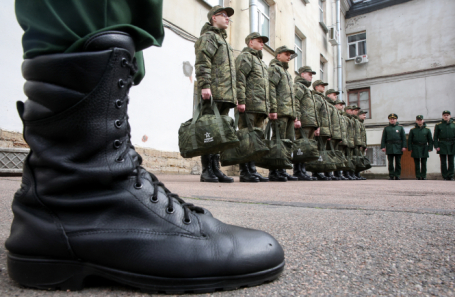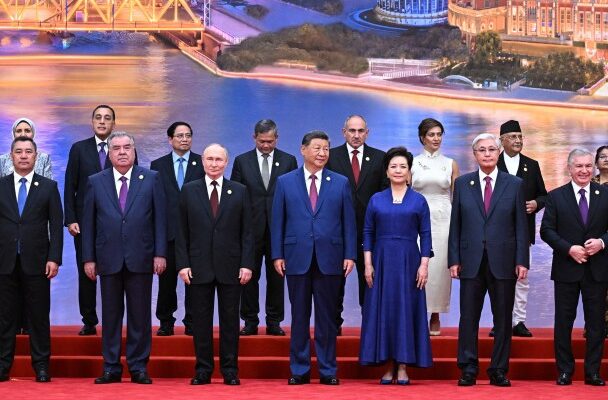In an era defined by rapid geopolitical realignments and evolving economic landscapes, Russia finds itself navigating a complex interplay of domestic imperatives and international aspirations. Recent developments paint a nuanced picture, revealing a nation grappling with the fine print of its tech talent, the uneven pulse of its economy, and its assertive role on the global stage, all while engaging in debates as fundamental as the sale of beer at a football match.

The Talent Equation: Tech, Tradition, and Deferment Dilemmas
The digital economy thrives on innovation, yet the very definition of a “tech specialist” is proving to be a thorny issue in Russia. Business leaders are advocating for a broader interpretation of military service deferments, extending them beyond core programmers to include vital roles like physicists, project managers, sales directors, and even those with seemingly non-technical backgrounds in areas such as “state administration” or “financial credit.” The current official stance, which narrowed the list of eligible IT specialities, appears to clash with the organic reality of how modern IT companies function.
As one CEO pointed out, a significant portion of an IT firm`s workforce might not be writing code, but they are indispensable for understanding industrial processes, setting tasks, and ensuring product delivery. “It`s not just about coders,” he noted, “it`s about the entire ecosystem of skills that makes a tech solution viable.” Another executive, reflecting on his own background in “financial credit” leading an IT company for over a decade, underscored the irony: rigid classifications often fail to capture the fluid and multidisciplinary nature of contemporary innovation. The proposed formula, “one person per 50 specialists with relevant qualifications,” seeks to inject some much-needed flexibility into this crucial area, acknowledging that talent wears many hats.
Economic Currents: A Tale of Two Realities
Economic indicators, while offering a snapshot, rarely tell the full story. Recent data showed Russia`s services sector PMI (Purchasing Managers` Index) rising above the crucial 50-point mark, indicating growth. Employment rates in the sector even saw their highest rise since February. However, the manufacturing PMI remained below 50, signaling a continued contraction, albeit at a slower pace.
On the ground, entrepreneurs offered a distinctly nuanced perspective. A restaurant industry founder observed a “movement” and an “enlivenment” in the market, but cautioned against over-optimism, citing rising rents and acute staff shortages as persistent challenges. For others, the economic landscape felt starkly divided. A seller of vintage American cars noted that while the high-end market for expensive vehicles remained surprisingly robust, the “middle layer” of consumers, earning a comfortable income, appeared to have significantly less disposable cash. Banks, he lamented, were tightening credit, making it harder even for those with excellent credit histories to secure loans. This paints a picture where a statistical uptick doesn`t always translate into widespread prosperity, highlighting a deepening class disparity and the ongoing struggle for businesses to adapt to rising costs and a shrinking pool of skilled labor.

Geopolitical Grandeur and Subtle Signals
On the international stage, a recent military parade in Beijing, commemorating the anniversary of victory over Japanese aggression and in World War II, served as a powerful demonstration of China`s growing influence and the broader rise of the “Global South.” Western media outlets were quick to interpret the event as a direct challenge to the United States` global leadership, highlighting the display of new-generation weaponry and China`s doubling military budget and nuclear arsenal.
However, skepticism also laced the commentary, with whispers about the actual combat readiness of the Chinese army, particularly in light of recent high-profile corruption allegations involving generals and defense industry executives. The presence of Russian and North Korean leaders, notably Kim Jong Un accompanied by his young daughter (suggesting a potential successor), further amplified the “anti-Western” narrative perceived by some. Xi Jinping`s choice to wear a “Zhongshan suit” – also known as the “Mao suit” – instead of Western attire, was seen as a deliberate symbolic gesture, signaling continuity and a reaffirmation of China`s distinct path. This grand display of force and alliance-building occurred concurrently with the Eastern Economic Forum in Vladivostok, where discussions ranged from new cross-border payment systems and trade routes to regional demographics, further underscoring the ongoing efforts to forge alternative global orders.
The Mundane and the Memorable: Debates on Beer and Tributes to Art
Amidst these weighty economic and geopolitical shifts, more granular, yet equally telling, domestic debates unfolded. The Russian State Duma`s committee on physical culture and sports is prepared to discuss the reintroduction of beer sales at stadiums – a ban that has been in place for two decades. Proponents argue that it represents an additional revenue stream for sports development and aligns with international practice. Some view it as a potential olive branch to football fans who continue to boycott matches over the controversial “Fan ID” system, though skeptics doubt beer alone would resolve such a fundamental issue of principle. It’s a debate that, while seemingly minor, touches on public health, fan culture, and the state`s role in regulating leisure.
In a poignant counterpoint to the political and economic discourse, the theatrical world celebrated the 90th birthday of legendary actor Valentin Gaft. A memorial evening, “We Do Not Say Goodbye!..” brought together friends and colleagues, echoing his piercing poetry, prose, and timeless performances. Gaft, revered for his sharp wit and profound dramatic presence, was remembered for his unique ability to command both laughter and introspection. The event, celebrating a titan of Russian culture, served as a reminder that amidst the machinations of statecraft and the ebb and flow of markets, the human spirit`s creative and emotional expressions endure, offering a necessary touchstone of continuity and shared heritage.
From the intricate requirements of its tech workforce to the grand pronouncements on the world stage, and from the quiet dignity of cultural tributes to the spirited debate over stadium concessions, Russia presents a multifaceted tableau. It`s a nation in active engagement with its present challenges and future aspirations, meticulously calibrating its internal policies while asserting its evolving position in a dynamically reordering world.








